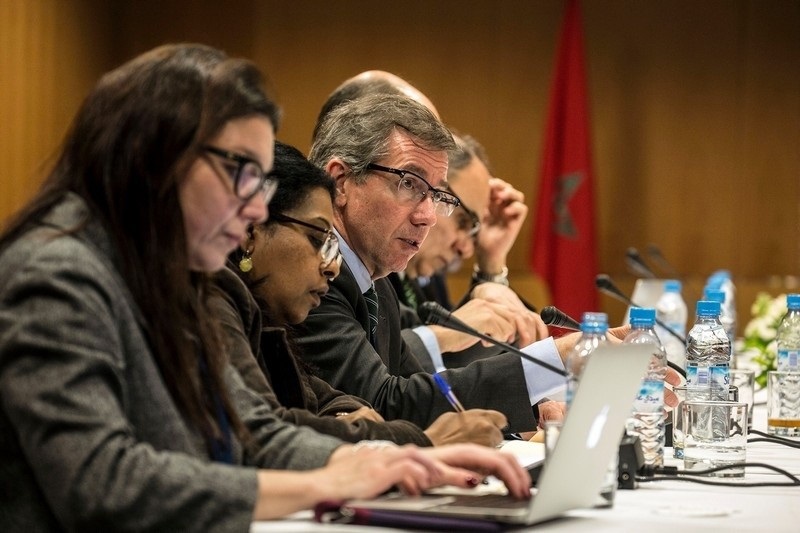UN Draft Political Agreement for Libya
On Monday, the Special Representative and head of the United Nations Support Mission in Libya (UNSMIL), Bernardino León, presented a new draft political agreement for Libya at a meeting of the Libyan Political Dialogue Process in Skhirat, Morocco.

Published by The Lawfare Institute
in Cooperation With

On Monday, the Special Representative and head of the United Nations Support Mission in Libya (UNSMIL), Bernardino León, presented a new draft political agreement for Libya at a meeting of the Libyan Political Dialogue Process in Skhirat, Morocco.
The draft agreement is the product of five months of intense UN-sponsored negotiations aimed at creating a national unity government in Libya to help stabilize the fractured country that has been riven by chaos since the fall of Muammar Qaddafi in 2011.
As described by León, the draft “provides a vision of the interim institutional architecture and security arrangements that will underpin the remainder of the transitional period. It focuses on providing these institutions with the capacity and tools they need to govern effectively while ensuring they remain bound by democratic principles, the separation of powers, and appropriate checks and balances.”
As reported by VOA:
The draft calls for the forming of a Tripoli-based National Accord Government, to be worked out between the negotiators.
The internationally recognized parliament, known as the House of Representatives, would remain in place as the official legislature. The Islamist-dominated Tripoli-based parliament would be dissolved, but 90 of its members would be included in a new 120-member body known as the High Council of State. The draft says that council would be the “highest consultative body” and that its opinion would be binding on drafting laws and government decisions.
The draft calls for a mechanism to integrate militias into the armed forces, something successive governments have failed to do. It calls for the National Accord Government to act as an executive authority with control over vital state institutions and crossings, though for nearly four years governments have been unable to exert such authority.
On Tuesday, León told reporters that “there is a general sense of hope, I would say even optimism” that a consensus would be reached on the draft agreement.
However, this was immediately followed by an announcement by Libya’s internationally recognized parliament that it was suspending its participation in the talks, reportedly accusing León of bending to Islamist demands and giving them more power. A spokesman for the parliament’s negotiating team stated that León “brought us to square one ... to appease an ideological group in a horrible way” and that the UNSMIL head had “succumbed to extortion.”
In response to the announcement, UN spokesman Stephane Dujarric stated, “We all remain hopeful the parties will support the agreement.”
However, even if the parliament’s negotiators return to the table and reach an agreement with their rivals, one analyst pointed out that “[t]he UN plan assumes that there are only two sides fighting against each other, but the multitude of different militias that have taken over will have to agree to the plan if it’s to work – and how that’s expected to happen is still unclear.”
English and Arabic texts of the draft agreement are reproduced below.
Download the UN’s Draft Political Agreement in English or in Arabic.



.jpg?sfvrsn=d5e57b75_5)

